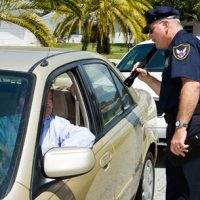Defending Against Illegal Search and Seizure in Orlando Drug Cases

When facing drug-related charges in Orlando, one of the most effective and critical defense strategies involves challenging the legality of the search and seizure conducted by law enforcement. Florida and federal laws provide robust protections against illegal searches and seizures under the Fourth Amendment of the U.S. Constitution and Article I, Section 12 of the Florida Constitution. Understanding these protections and common police errors can significantly enhance a defendant’s chances of suppressing evidence, potentially leading to reduced or dismissed charges. Engaging an experienced Orlando drug crime lawyer early in your case is essential to effectively challenge illegal police practices and protect your rights.
Understanding Your Constitutional Rights
The Fourth Amendment guarantees citizens the right to be free from unreasonable searches and seizures. It requires law enforcement to have probable cause and, in many cases, a valid search warrant issued by a judge. Under Florida law, these protections are further affirmed, ensuring individuals have robust defenses against invasive and unlawful police practices. Essentially, law enforcement officers must have a justified reason to search you, your vehicle, or your property.
If officers fail to follow these constitutional requirements, any evidence they collect during an illegal search or seizure can be challenged in court. Successfully challenging such evidence typically involves filing a motion to suppress, which, if granted, prevents the prosecution from using illegally obtained evidence against you.
Common Police Errors in Drug Cases
Law enforcement officers must adhere strictly to constitutional requirements, yet common errors and oversights frequently occur, providing defense attorneys opportunities to challenge the legality of searches and seizures.
Insufficient Probable Cause
Probable cause requires officers to have reasonable grounds to believe a crime has been committed before conducting a search. Simply having a “hunch” or suspicion without specific evidence or observable facts is insufficient. For instance, being nervous during a traffic stop or having out-of-state license plates alone typically does not justify a search.
Lack of Consent
One common scenario in Orlando drug cases involves police officers searching a vehicle or property without obtaining proper consent. Officers may misrepresent the necessity of a search or imply consequences if consent is withheld, which can invalidate the consent entirely. To be lawful, consent must be voluntary, clear, and unequivocal.
Improper Warrant Procedures
Search warrants must be specific and based on accurate, sworn information. Errors in the application for a warrant, such as misleading information or inaccuracies presented by law enforcement, can render the search illegal. Warrants must also clearly specify the place to be searched and the items to be seized. Any deviation from these specifics during the search may result in suppression of evidence.
Excessive Scope of Search
Even when officers have a valid search warrant, they are restricted to searching within the boundaries explicitly stated in the warrant. Searches exceeding these boundaries without justification are illegal. For example, if the warrant specifies the search of a particular room within a residence, any search beyond that room without further justification can lead to suppression of evidence discovered elsewhere.
Rights Violations During Searches
Beyond procedural errors, individuals have specific rights during interactions with law enforcement that officers may inadvertently or intentionally violate. One such right is the right to privacy, which extends to your vehicle, residence, personal belongings, and even your person. Law enforcement must observe strict limits unless exigent circumstances, like immediate threats to safety or the destruction of evidence, clearly exist.
Another significant violation occurs when police conduct searches incident to an arrest without proper justification. Officers are permitted limited searches to ensure their safety and prevent the destruction of evidence, but these searches must directly relate to the circumstances of the arrest. Overextending this search beyond reasonable limits could constitute an illegal search.
The Role of Evidence Suppression Motions
The primary legal mechanism for challenging illegally obtained evidence in Orlando drug cases is a motion to suppress evidence. When defense attorneys identify a constitutional violation, they file this motion to request that the court exclude the illegally obtained evidence from trial.
A successful motion to suppress has profound implications for a criminal case. Often, the suppressed evidence is essential to the prosecution’s case, such as the drugs themselves, paraphernalia, or admissions made during an unlawful search or seizure. Without this critical evidence, prosecutors frequently find their cases severely weakened or untenable, leading to reduced charges, plea bargains, or outright dismissal.
Strategic Defense Tactics
An effective Orlando drug crime lawyer will thoroughly examine every aspect of the police encounter, from the initial stop or approach through to the eventual search and seizure of evidence. Detailed reviews of police reports, witness statements, video footage, and other relevant evidence help identify constitutional breaches.
Your attorney may also utilize expert testimony, highlighting procedural standards and best practices in law enforcement searches, thereby strengthening arguments against admissibility. By leveraging these strategic tactics, attorneys increase the likelihood of favorable rulings on suppression motions.
Importance of Experienced Legal Counsel
Successfully challenging illegal searches and seizures requires thorough knowledge of constitutional law, meticulous attention to detail, and skilled courtroom advocacy. An experienced Orlando drug crime lawyer possesses these crucial skills, significantly enhancing the odds of a positive outcome in your drug case.
Contact Joshi Law Firm, PA
If you or someone you know is facing drug charges stemming from a potentially illegal search or seizure in Orlando, immediate legal action is necessary. At Joshi Law Firm, PA, we specialize in identifying constitutional violations and aggressively advocating for our clients’ rights. Protect your future by contacting Joshi Law Firm, PA today for a confidential consultation and begin building a robust defense.
Sources:

